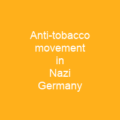Sophia Magdalena Scholl (9 May 1921 – 22 February 1943) was a German student and anti-Nazi political activist, active within the White Rose non-violent resistance group in Nazi Germany. She was convicted of high treason after having been found distributing anti-war leaflets at the University of Munich with her brother, Hans. As a result, she was executed by guillotine.
About Sophie Scholl in brief

Her initial enthusiasm gradually gave way to criticism. She became aware of the dissenting political views of her father, friends, and some teachers. Even her own brother Hans, who once eagerly participated in the Hitler Youth program, became entirely disillusioned with the Nazi Party. In spring 1940, she graduated from secondary school, where the subject of her essay was ‘The Hand that Moved the Cradle, Moved The World’ Scholl nearly did not graduate, having lost all desire to participate in the classes which had largely become Nazi indoctrination. In May 1942, she enrolled at the university of Munich as a student of biology and philosophy. Although this group of friends eventually was known for their political views, they initially were drawn together by a shared love of art, music, literature, philosophy, and theology. Hiking in the mountains, skiing and swimming were also of importance to them, They often attended concerts, plays, and lectures together. Between 1940 and 1941, Schol’s brother, a former member of the Adolf Hitler Youth, began questioning the principles and policies of the Nazi regime. At the same time, her father was serving time in prison for having made a critical remark to an employee about Hitler. She had a talent for drawing and painting and for the first time, came into contact with a few so-called ‘degenerate’ artists.
You want to know more about Sophie Scholl?
This page is based on the article Sophie Scholl published in Wikipedia (as of Dec. 09, 2020) and was automatically summarized using artificial intelligence.







